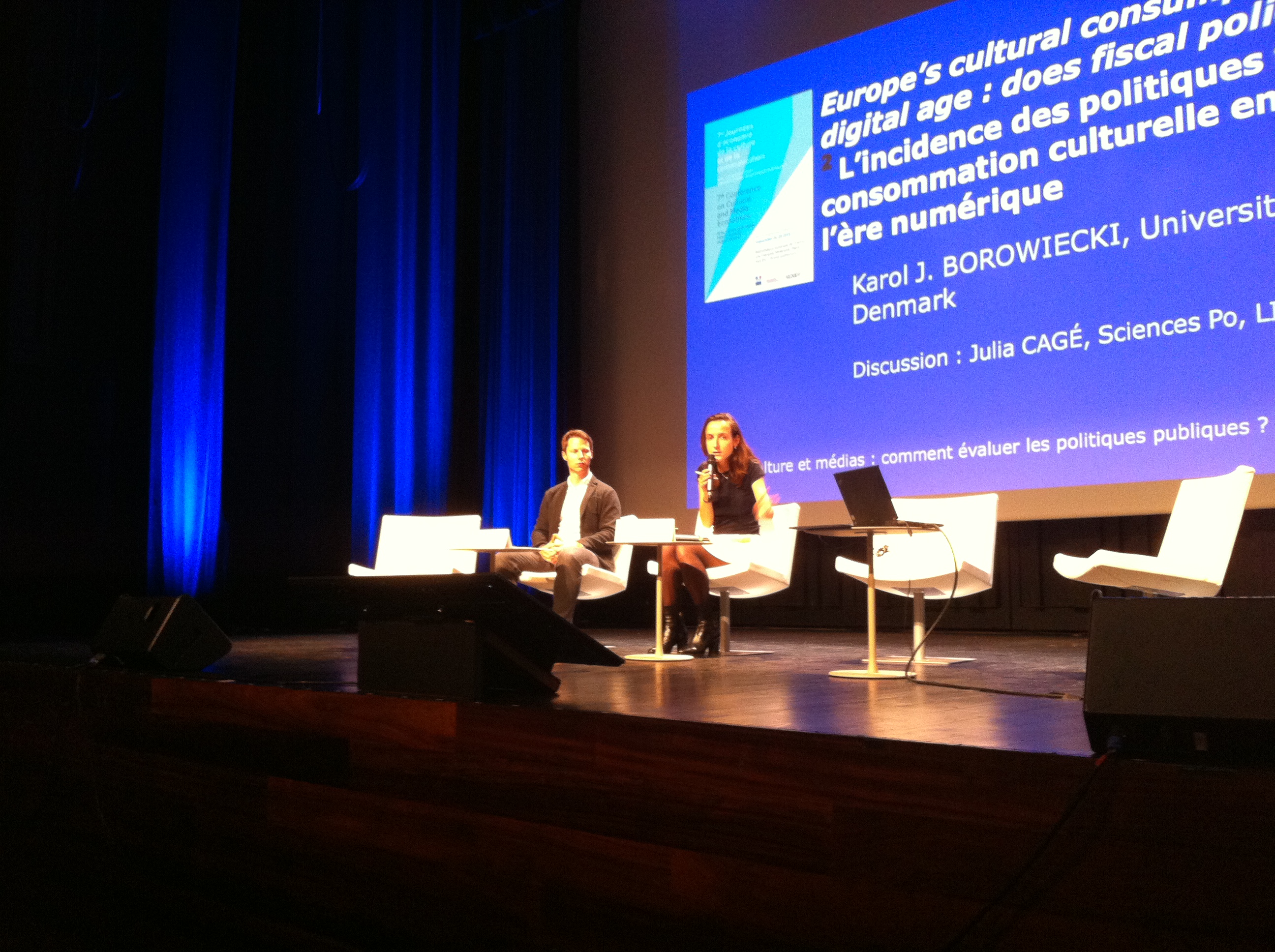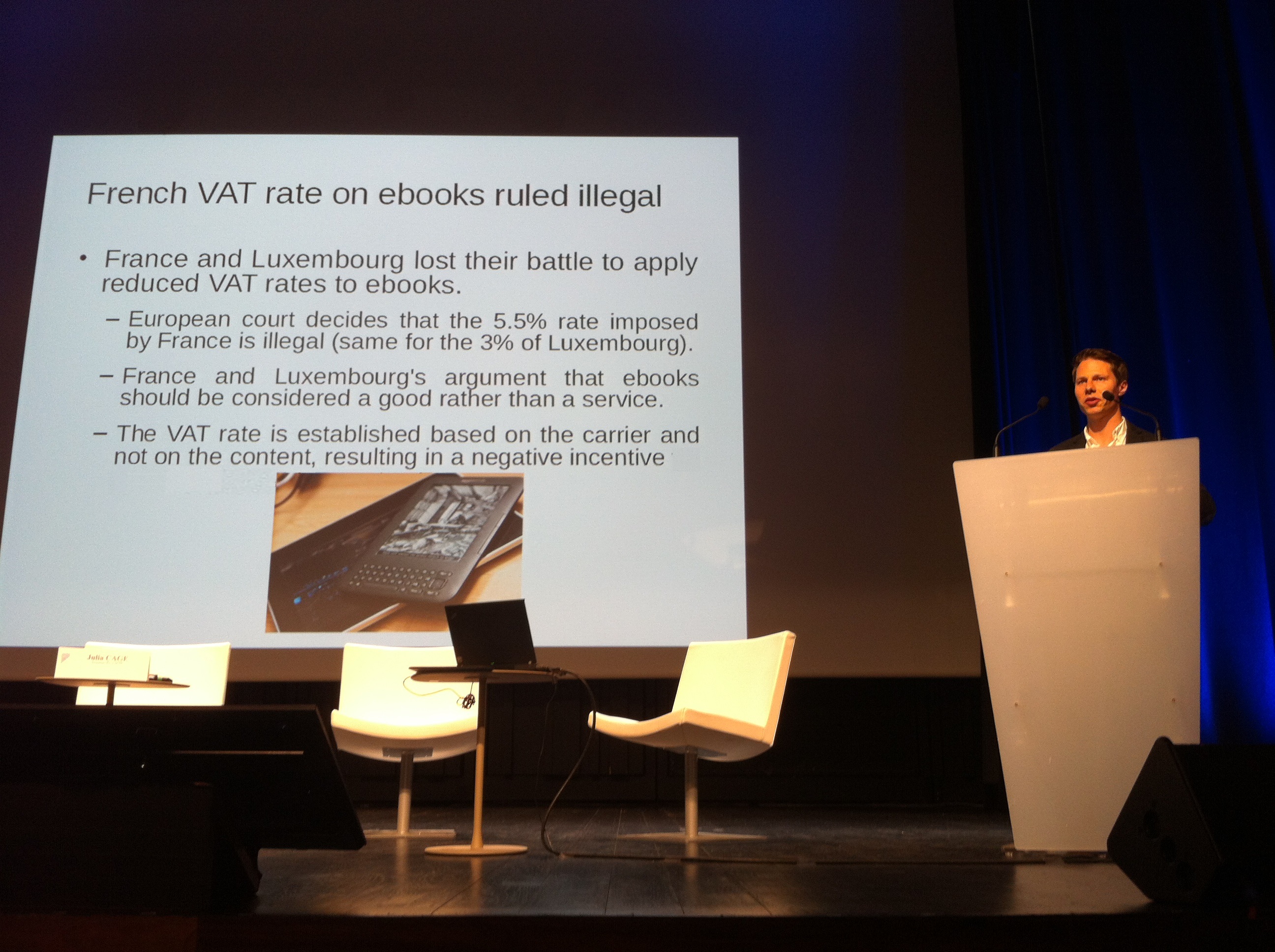Societal Relevance
A summary of societal relevance and policy impact of my research can be accessed here.
Cultural Policy
The Impact of Airbnb Hosts on Arctic Local Economies: Consumption Patterns, Entrepreneurship and Sustainability, Report for Nordic Council of Ministers, 2023
Competing for Equality: The Gender Gap in Piano Competitions since 1890, Brief for the WFIMC General Assembly, 2023
Cultural Heritage as a Source of Societal Well-being in European Regions, Country expert for Denmark, 2020-2022
Economics and the arts. A virtuous example of gender equality, joint with Caterina Mauri, Report on gender equality in cultural economics, 2019
New research proves cultural value of video gaming, Policy brief commissioned by the National Endowment for Science, Technology and the Arts (NESTA) in the UK, 2017
Consumption of Europe's Cultural Heritage in the Digital Age: Does Fiscal Policy matter?, joint with Trilce Navarrete and Lucie Duggan, Chapter commissioned by the Ministry of Culture and Communication in France, 2017
The Long-tail of Museum Collections: Ethnographic collections onsite and online, joint with Trilce Navarrete, UNESCO Institute for Statistics Symposium Proceedings, 2016
The Economic and Fiscal Dimension of Cultural Heritage, European Policy Brief, 2016
Cultural Heritage as fuel for innovation: Enabling the power of creation, Think Papers Collection, 2016
Place-making, promotion and commodification of Cultural Heritage resources, RICHES Policy Report, 2015
Fiscal and Economic Issues in the Digital Age, RICHES Policy Report, 2015
Economics of Culture, RICHES Information Brochure, 2015
RICHES Taxonomy of cultural heritage definitions, European Policy Brief, 2015
Media Coverage (selected)
Meta-ekspressen buldrer forbi (in Danish, from 27:40), K-Live, DR Radio P1, 8 April 2025
Han har fået lavet en usynlig statue af sig selv (in Danish, from 18:10), Puls, DR Radio P2, 12 March 2025
Does Money Affect Creativity in the History of Western Classical Music?, Marginal Revolution, 29 November 2024
Krigskunst, Jyllands-Posten, 17 August 2024
People prefer personal Airbnb hosts (in Norwegian), Forskning.no, 19 June 2024
Where are the female composers?, Marginal Revolution, 15 June 2024
The absence of female composers in the history of music, Il Bo Live, 15 April 2024
Assessing the opinions of experts and non-experts through the lens of international classical music competitions, Economists Talk Art Blog, 5 March 2024;
Crowd wisdom: A win for women musicians, WU Vienna Blog, 5 February 2024
Audience fairer than jury: Study focuses on music competitions (in German), Austria Presse Agentur, 5 February 2024
‘We’re going to blame the women, not our sexism’: bias holding back top female pianists, The Guardian, 3 February 2024
What I’ve been reading, Marginal Revolution, 4 December 2023
Harmonious relations: Quality transmission among composers in the very long run, EHES Blog, 11 October 2023
Unraveling the Economic Threads of Art: An Introduction to the Economic History of the Arts, EHES Blog, 11 October 2023
Our jury only listens to the music, World Federation of International Music Competitions, June 2023
Well-being and creativity, Sister Doctor Squared Podcast, 21 September 2022
Ukrainsk flygtning i Danmark, Politiken, 8 August 2022
Komponister i krigsramte lande er mere kreative, Kristeligt Dagblad, 9 June 2022
Artisters kreativitet blomstrer under krigsangreb, Dansk Artist Forbund, 16 June 2022
Kreativiteten stiger, når fjenden angriber, DR Radio, 2 June 2022
Sad music can bring us to tears, ABC News, 31 May 2022
Krig og Kultur, Ny Viden, 25 May 2022
Bittersweet, #1 New York Times Bestseller, by Susan Cain, 20 April 2022
Is There an Inherent Connection Between Sadness and Art-Making?, Literary Hub, 7 April 2022
Teachers and Creativity, The Visible Hand Podcast, 31 March 2022
How teachers influence creativity: Evidence from music composition since 1450, World Economic Forum, 3 February 2022
Monet Talks, Perspectives, 1 February 2022
How teachers influence creativity, VoxEU, 29 January 2022
What is the creative influence of teachers?, EconomistsTalkArt.org, 18 January 2022
Welchen kreativen Einfluss haben Lehrer? Einblicke aus der Musikkomposition seit 1450, Ökonomenstimme, 9 July 2021
Economics needs to evolve, The Economist, 26 June 2021
The average gamer (from 21:20), More or Less, BBC Radio 4, 2 June 2021
Creativity, Well-being and the Influence of Composers since 1450, The Economic History Podcast, 1 June 2021
Does the analysis of Beethoven's letters prove that creativity arises from misery? (in French), Passéisme, 19 May 2021
Hvilken indflydelse har rollemodeller i de kreative sektorer?, Erhvervplus, 9 February 2021
Beethovens breve sladrer om inspirationen i sorgen, Kristeligt Dagblad, 3 February 2021
8 Insights From A 160 Year Study On Artists, Musicians, Actors And Authors, Forbes, 28 January 2021
Beethoven 250: analysis of the composer’s letters proves that creativity does spring forth from misery, The Conversation, 16 December 2020
Ny forskning: Et rigt kulturliv øger nystartede virksomheders mulighed for at få succes, Kulturmonitor, 28 October 2020
Kunstnere skaber økonomisk vækst, Ny Viden, 20 October 2020
For These Local Artists, Essential Work Was the Foundation of a Creative Life. Now What?, Washington City Paper, 28 May 2020
If we want a vital, creative society, The Washington Post, 4 August 2020
The land of artistic beauty and racial inequality: A study of the US since 1850, VoxEU, 2 July 2020
Is sadness the fuel of creative geniuses? (in Portuguese), Diário de Notícias, 14 January 2020
The Pursuit of Deadly Immortality (in Chinese), Handan Culture Network, 12 January 2020
Why do geniuses come in groups? The mystery of the composer (in Chinese), Yidian Zixun, 7 January 2020
The Anatomy of Sadness (from 34:47), The Pulse, WHYY National Public Radio, 6 September 2019
Art for the 99 Percent, Jacobian, 4 May 2019
Wealth Is a Strong Predictor of Whether an Individual Pursues a Creative Profession, Smithsonian, 2 May 2019
Study Shows Artists Are More Likely to Come From Wealthy Families, Highsnobiety, 1 May 2019
Study: Artists Are More Likely to Come From Rich Families, W, 30 April 2019
Do You Come From a Wealthy Family? You're More Likely to Become an Artist Than Someone From a Poorer Background, Artnet News, 29 April 2019
A Study Says High Family Income Significantly Increases Likelihood of Becoming an Artist, Hyperallergic, 26 April 2019
Poverty as a soul devourer (in Czech), Roklen24, 26 April 2019
Want to Be an Artist? Hope Your Parents Are Loaded, Money, 23 April 2019
Fiscal and economic aspects of book consumption in the European Union, EconomistsTalkArt.org, 3 July 2018
VAT, the price, and the culture pass (in French), Livres Hebdo, 2 May 2018
Study proves: Gamers are educated, culturally engaged, and have a lot of money (in German), Giga, 30 July 2017
Typical video gamer is middle-aged, educated and female, Nesta study finds, The Sunday Times, 22 July 2017
Economists defending video game players, liveMINT, 18 February 2017
Mozart teaches you to stay creative in low mood states (in Spanish), Equipos & Talento, 16 November 2016
Untitled, The Mail on Sunday, 14 August 2016
Ode to Sadness: Melancholy as a Creativity Catalyst in Mozart and Beethoven? (in German), Klassik, 5 August 2016
The powerful and positve effect of sadness, Myanmar Times, 4 August 2016
Link between negative emotions and artistic brilliance confirmed, Toronto Star, 31 July 2016
Researcher: Mozart, Beethoven, Liszt Were More Creative When They Were Unhappy, Arts Journal, 29 July 2016
For Mozart, Misery Inspired Masterpieces, Pacific Standard Magazine, 29 July 2016
Misery found to feed creativity, NZ Herald, 27 July 2016
Mozart, Beethoven and why happiness can get in the way of creativity, World Economic Forum, 27 July 2016
Study: Being Depressed Can Make You More Creative, Tech.co, 26 July 2016
Science Says If You Want To Be Creative, Try Being Completely Miserable, Inc.com, 26 July 2016
Why being happy can be a disadvantage for artists? (in Spanish), El Observador, 26 July 2016
The great benefit of sadness, explained by Mozart and Beethoven (in Spanish), PlayGround Magazine, 26 July 2016
The downside of being happy, The Washington Post, 25 July 2016
Little ode to joy in letters from composers' productive years, Boston Globe, 19 June 2016
From Berlin's warehouses to London's estates: How cities shape music scenes, The Guardian, 3 February 2016
There’s no need to suffer for your art, The Times, 24 December 2015
Gastblog: Digitization of Heritage Collections as Indicator of Innovation, Digital Heritage Netherlands, 21 September 2015
Death after notes (in German), GEO Magazine, July 2015
The persistence of Italian musical and entertainment traditions, Marginal Revolution, 23 May 2015
Stress caused by bitter rivalry led to premature deaths of leading 19th century composers, The Telegraph, 18 April 2015
Striving for fame caused composers to die earlier (in German), Kurier, 9 April 2015
Is Peer Pressure Shortening Your Life?, The Pacific Standard Magazine, 6 April 2015
Composers died younger partly because of stress (in French), Slate France, 6 April 2015
Byernes musik, Fynske Medier, 22 March 2015
War Can Both Inspire and Inhibit Artistic Creativity, The Pacific Standard Magazine, 4 December 2014
Why it pays to live near creative people - just not too many, The Washington Post, 8 September 2014
The time has come for a new Lottery distributor for the video games industry, Nesta Blog, 21 March 2014
Competitive Nature, New Music Box, 25 October 2013
Hysteresis in cultural supply, Economic Logic Blog, 11 September 2012
The dark side of competition, Stumbling and Mumbling Blog, 6 July 2011
Cluster Research looked at Composers, RTE News, 13 April 2011
What did two centuries of war do to classical music?, Chris Blattman's Blog, 12 April 2011
He awaked in himself a powerful strength, Part 2 (in Polish), Echo Dnia Daily Newspaper, 15 February 2008
Culture in Krakow, Wroclaw & Co. (in German), Polykum 7, 2005/06
Getting Culture with Ostgang in Poland (in German), Polykum 2, 2005
Give Poles a Chance in Iraq (in German), Tages Anzeiger, 14 May 2003
The Best of the Best (in Polish), Echo Dnia Daily Newspaper, 17 November 1999
EconomistsTalkArt.org
In 2015, I have founded and co-edited Economists Talk Art, a platform for research-based policy analysis and commentary, now hosted by the ACEI. The platform promotes the dissemination of cultural economics research to policy makers, cultural and heritage institutions, academia, the private sector, and specialist media.
Economists Talk Art is viewed 18000+ per year by 9000+ recurring visitors, and publishes ca. 25 articles per year
Public Lectures and Research Impact
I am very excited about delivering public lectures and sharing my research implications not only with fellow economists, but also with policy makers, colleagues from other disciplines and the wider public. I delivered keynote speeches at the IV Ibero-America Conference on Cultural Economics in Mexico City, Polish Conference of Cultural Economics (slides) in Warsaw, Accounting History Review Conference at the Edge Hill University, and International Conference on Cultural Heritage in Pisa, I spoke at a general public conferences on Cultural and Media Economics, invited by the French Cultural Ministry, on Economic History and Economic Policy, invited by the National Bank of France, and at the interdisciplinary conference "Genius for Sale!", invited by the University of Oxford.


Manifest of a Scholar
Research needs to leave academic circles. Not necessary each single paper, as some research can be formative, but every now and then it needs to reach the society. Otherwise, in the extreme, if it forever remained in academic journals and scholarly circles, it would have completely no value. Research for the sake of research comes with no benefit, other than the scholarly pleasure derived from conducting it, and any claims to receive public funds would be illegitimate. The only way for research to become potentially valuable is to reach sometimes the public. Above I list few modest attempts where I try to make an impact.

